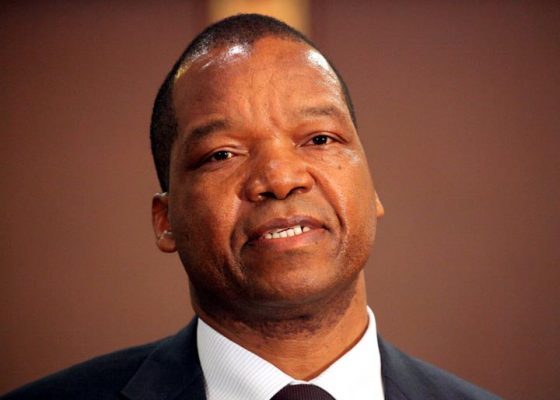RBZ tables Fidelity shareholding deal

Zimbabwe’s central bank has tabled a shareholding agreement for its subsidiary, Fidelity Printers and Refiners (FPR), almost eight months after a proposal to unbundle the company into two entities was announced.
The Reserve Bank of Zimbabwe (RBZ) wants to unbundle FPR into two entities — gold refining and printing and minting.
Under the proposal, RBZ wants to retain the printing and minting business but would dispose of its 60% shareholding in the gold refining unit.
RBZ governor John Mangudya (pictured) told Business Times this week an agreement on shareholding had been submitted and the deal would be concluded by the end of the third quarter.
“We have made significant progress on the FPR unbundling as we have submitted an agreement of shareholding to the relevant parties and they are going through them so that they will give us feedback on the issue,” Mangudya said.
Under the proposal, big mining houses have been offered a 50% stake in the gold refining unit, while the small-scale miners and FPR gold buying agents were offered 7% and 3% respectively.
The proposal follows the model of Rand Refinery, South Africa’s biggest refinery, which is owned by the five largest gold miners — AngloGold Ashanti, Gold Fields, Harmony, Sibanye Gold and DRDGOLD.
Mangudya said the unbundling of FPR is designed to partially privatise the gold refining business by allowing private players to acquire a stake therein and in the process secure and endear the private sector’s interests in the production and marketing of gold in Zimbabwe.
RBZ is expecting that the gold producers’ compliance levels in the trading of gold will significantly increase the output due to the fact that gold dealers will be part of the decision-making process in gold trading.
The privatisation of FPR comes after lobbying from some players in the mining business.
Large scale miners’ representative arm, Chamber of Mines of Zimbabwe CEO Isaac Kwesu said: “Some of our members are confirming the development but we only wait to hear from them if they have agreed or not.
“We don’t tell them to agree or turn down the offer but it is best for them to do so.”
Gold Miners Association of Zimbabwe chief executive officer, Irvine Chinyenze said progress has been made in the unbundling processes.
However, there was a need to bring in more players in the gold buying sector to promote competition in the sector, he said.
“The unbundling process is going on smoothly but we need more players in the buying of gold to be competitive and give the miners a good run for their money,” Chinyenze said.
Among the country’s biggest gold producers are RioZim and Caledonia Mining.
FPR started refining gold in 1988, and at its peak producers from abroad sent in their gold for refining at its Msasa refinery. However, FPR has not used most of its installed capacity to refine 50 tonnes of gold per year.
With more gold expected through the formal channels, experts believe FPR full capacity will be reached by 2022.



